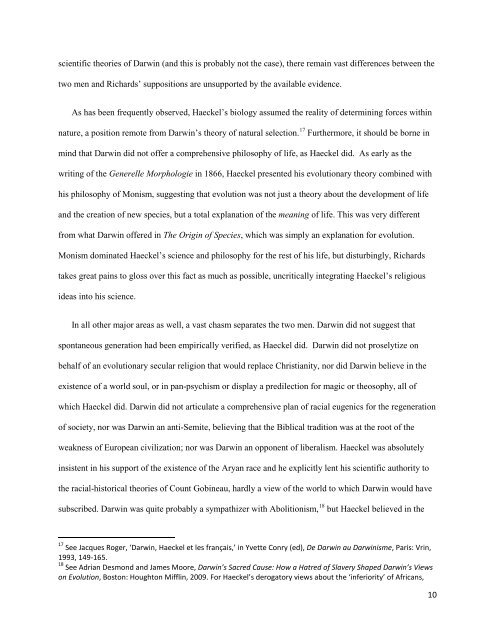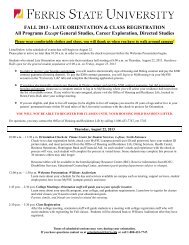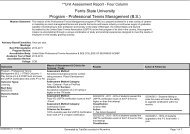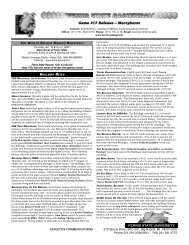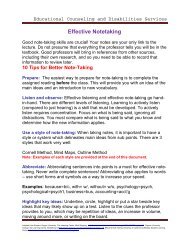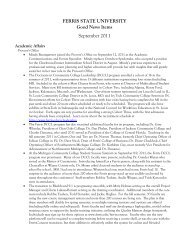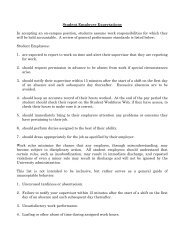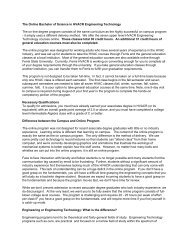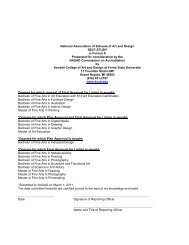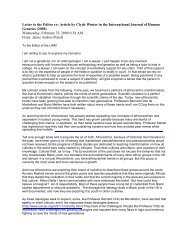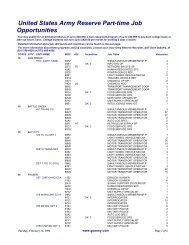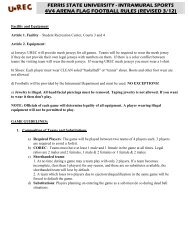Daniel Gasman - Ferris State University
Daniel Gasman - Ferris State University
Daniel Gasman - Ferris State University
You also want an ePaper? Increase the reach of your titles
YUMPU automatically turns print PDFs into web optimized ePapers that Google loves.
scientific theories of Darwin (and this is probably not the case), there remain vast differences between the<br />
two men and Richards’ suppositions are unsupported by the available evidence.<br />
As has been frequently observed, Haeckel’s biology assumed the reality of determining forces within<br />
nature, a position remote from Darwin’s theory of natural selection. 17<br />
Furthermore, it should be borne in<br />
mind that Darwin did not offer a comprehensive philosophy of life, as Haeckel did. As early as the<br />
writing of the Generelle Morphologie in 1866, Haeckel presented his evolutionary theory combined with<br />
his philosophy of Monism, suggesting that evolution was not just a theory about the development of life<br />
and the creation of new species, but a total explanation of the meaning of life. This was very different<br />
from what Darwin offered in The Origin of Species, which was simply an explanation for evolution.<br />
Monism dominated Haeckel’s science and philosophy for the rest of his life, but disturbingly, Richards<br />
takes great pains to gloss over this fact as much as possible, uncritically integrating Haeckel’s religious<br />
ideas into his science.<br />
In all other major areas as well, a vast chasm separates the two men. Darwin did not suggest that<br />
spontaneous generation had been empirically verified, as Haeckel did. Darwin did not proselytize on<br />
behalf of an evolutionary secular religion that would replace Christianity, nor did Darwin believe in the<br />
existence of a world soul, or in pan-psychism or display a predilection for magic or theosophy, all of<br />
which Haeckel did. Darwin did not articulate a comprehensive plan of racial eugenics for the regeneration<br />
of society, nor was Darwin an anti-Semite, believing that the Biblical tradition was at the root of the<br />
weakness of European civilization; nor was Darwin an opponent of liberalism. Haeckel was absolutely<br />
insistent in his support of the existence of the Aryan race and he explicitly lent his scientific authority to<br />
the racial-historical theories of Count Gobineau, hardly a view of the world to which Darwin would have<br />
subscribed. Darwin was quite probably a sympathizer with Abolitionism,<br />
17<br />
See Jacques Roger, ‘Darwin, Haeckel et les français,’ in Yvette Conry (ed), De Darwin au Darwinisme, Paris: Vrin,<br />
1993, 149-165.<br />
18<br />
See Adrian Desmond and James Moore, Darwin’s Sacred Cause: How a Hatred of Slavery Shaped Darwin’s Views<br />
on Evolution, Boston: Houghton Mifflin, 2009. For Haeckel’s derogatory views about the ‘inferiority’ of Africans,<br />
18<br />
but Haeckel believed in the<br />
10


